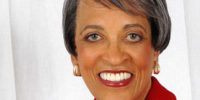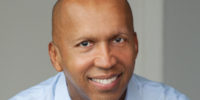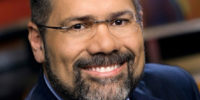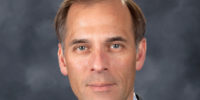This year’s NACUBO 2016 Annual Meeting will be held in Montréal, July 16–19, at the Palais des congrés de Montréal. The conference will feature engaging and dynamic general sessions, with keynotes who will cover a range of topics of particular interest to business officers. Here are some highlights of our general sessions speakers’ careers, publications, and passions.
 Sir Ken Robinson
Sir Ken Robinson
SPEAKER, AUTHOR, AND CONSULTANT
An internationally recognized leader in the development of creativity, innovation, and human resources in education and business, Robinson, has provided insightful commentary on education and won numerous awards for his work.
“The problem with conformity in education is that people are not standardized to begin with.”
From his book, Creative Schools
 Johnnetta Cole
Johnnetta Cole
MUSEUM DIRECTOR, ANTHROPOLOGIST, AND EDUCATOR
Currently the director of the Smithsonian National Museum of African Art, Cole has served as president at two historically black colleges for women—Spelman College, Atlanta, and Bennett College, Greensboro, N.C. Throughout her career, she has shared her knowledge about education and has been honored with some of the top awards in her field.
“The first thing that I would say to anyone who is about to go off to college is choose the college based, not on what career you want exclusively, but where you can get a quality liberal arts education.”
Interview with Higher Education Today on UDC-TV, published on Oct. 24, 2013
 Bryan Stevenson
Bryan Stevenson
LAWYER, ACTIVIST, AND PROFESSOR
Dedicated to helping the poor, incarcerated, and condemned, Stevenson founded the Equal Justice Initiative shortly after finishing law school. His dedication as an activist has been recognized through numerous awards and honors over the past 15 years.
The Equal Justice Initiative has prevented the deaths of 115 male prisoners and persuaded the U.S. Supreme Court to end life sentences without parole for minors as young as 13. In February 2016, Google announced that it would donate $1 million to the initiative.
Regarding the justice system, Stevenson says, “We have a justice system in this country that treats you much better if you are rich and guilty than if you are poor and innocent. Wealth, not culpability, shapes outcomes.”
From a 2015 TED Talk, “We Need to Talk About an Injustice”
 Ray Suarez
Ray Suarez
JOURNALIST, AUTHOR, AND SPEAKER
Known for his passionate presentations that connect with listeners, Suarez has written several books, including Latino Americans: The 500-Year History That Shaped a Nation (Penguin, 2013).
Suarez’s careful and considerate news reporting has earned him the following honors:
- Co-recipient of the Alfred I. Dupont–Columbia award for NPR’s on-site coverage of the first multiracial elections in South Africa (1993).
- Awarded the Ruben Salazar Award from the National Council of La Raza in 1996.
- Inducted into the Hall of Fame, National Association of Hispanic Journalists, in 2010.
- Founding member of the Chicago Association of Hispanic Journalists.
About Latinos, Suarez says that they are fighters who overcame their obstacles. “They fought for the right to vote, fought against social exclusion, and they kept on fighting until they were part of the whole.”
 Mark Zandi
Mark Zandi
POLICY ADVISER, ECONOMIST, AND AUTHOR
Zandi, chief economistof Moody’s Analytics, who frequently testifiesbefore Congress on the U.S. economic outlook, continually shares his insight on economics in the United States. Over the past few years, he’s had this to say about the economy:



